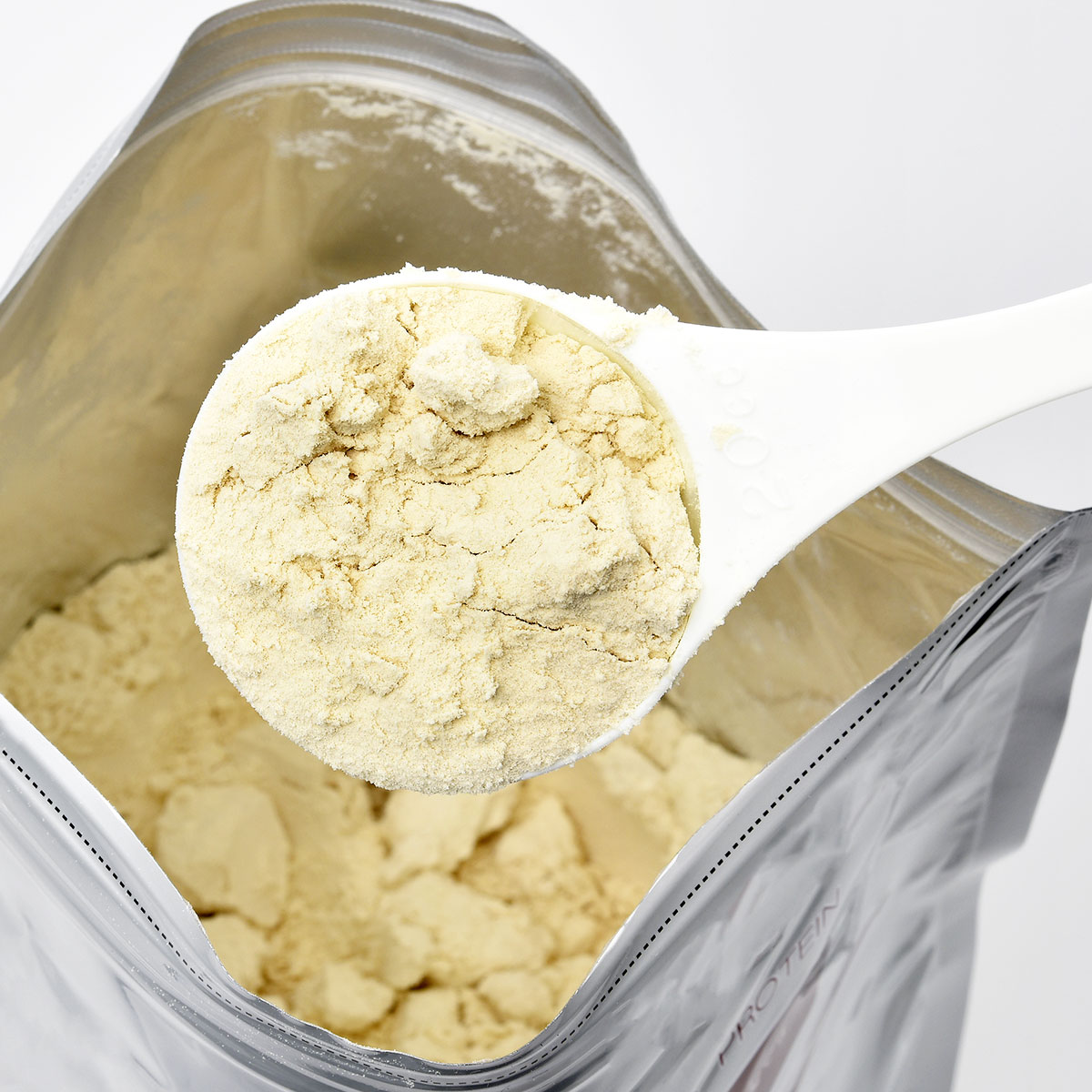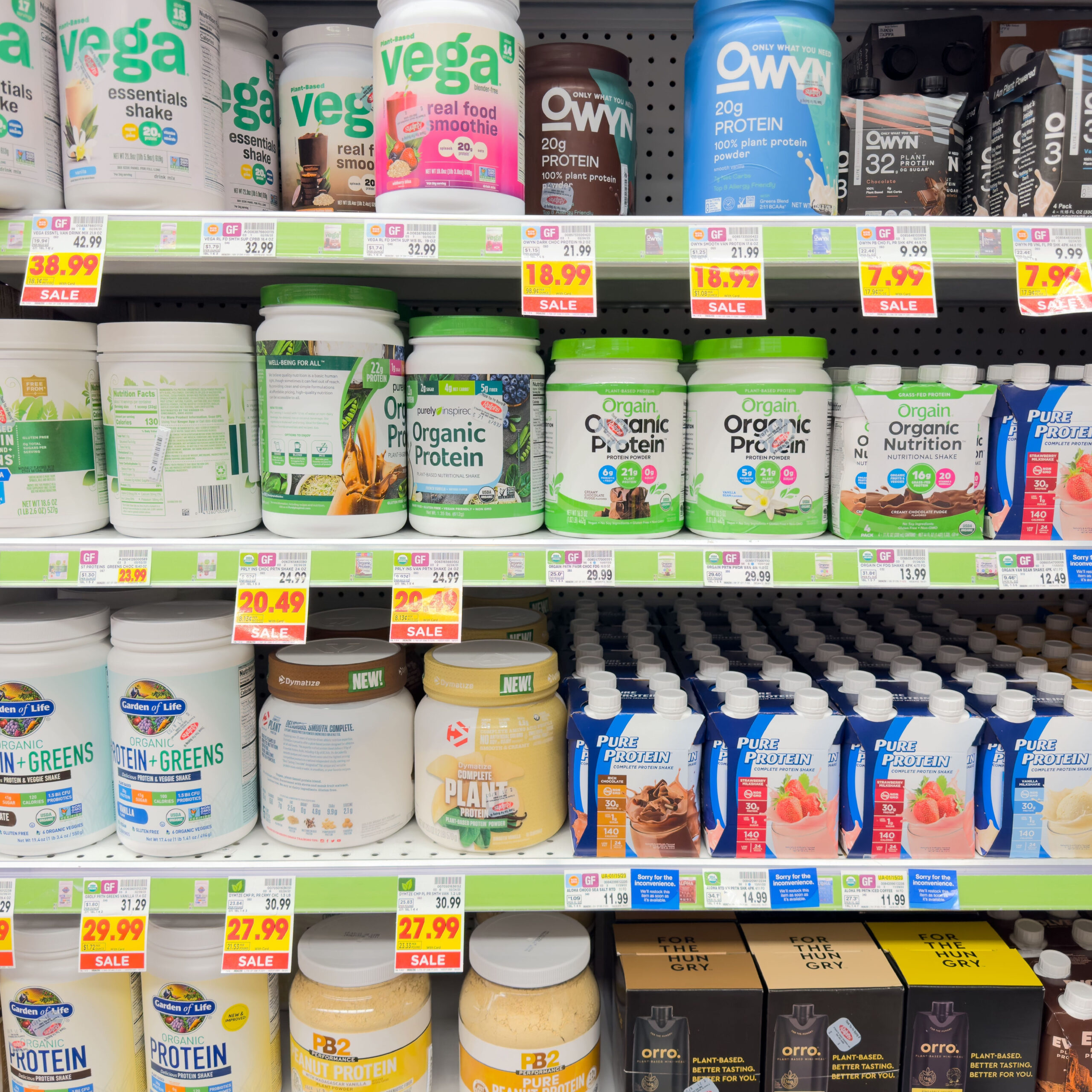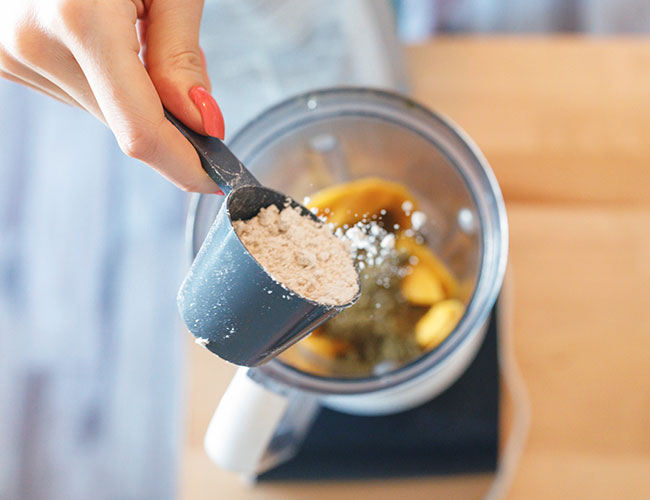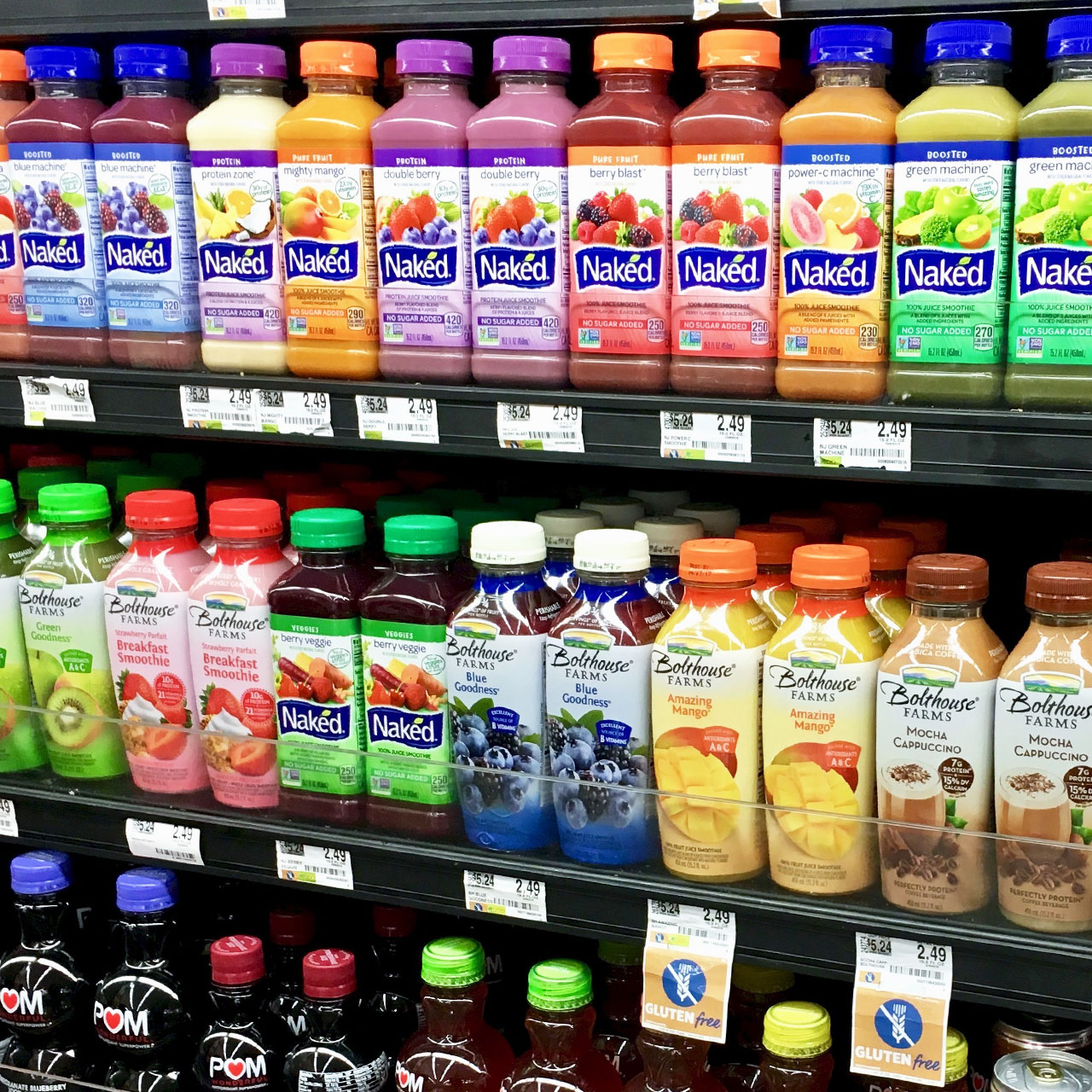This story has been updated since it was originally posted on 10/16/23 to include more expert insight
If your health goals include building muscle, you probably already know all about the importance of protein. Fitting enough protein in your diet is always crucial, but this macronutrient plays an especially vital role when it comes to muscle-building. Luckily, there are a lot of ways to fit it into your diet in a healthy way, including regularly adding lean meats to your plate. You may even opt for protein powder, which is commonly used to make protein shakes and sometimes even added to foods like pancakes. However, it’s important to be aware of the risks at hand. As it turns out, consuming too much protein powder could actually be detrimental to your health.
To discover a few of the downsides of protein powder, we spoke to Dana Ellis Hunnes, registered dietitian and author of Recipe for Survival, and Catherine Gervacio, registered dietitian and nutrition writer for Living.Fit. They told us that it could lead to kidney damage, digestive issues, and more. Read on to find all of their expert insight.


Downsides to protein supplements
While protein supplements like protein powder are typically fine in moderation, they can take a toll on your body if you're not careful. This is largely due to the fact that supplementation could put you well over your daily recommended amount of protein, which Hunnes notes is about .36 grams of protein per pound of body weight: "This means an average healthy 140-pound woman only needs 51 grams of protein per day." Considering some protein powders pack in as many as 30 grams per serving, it's important to be aware of what going overboard on protein could do to your body.

Protein Supplements and Kidney Damage
But isn't more protein good? Not always. According to Hunnes, giving your body more protein than it needs could have adverse effects. "The excess protein (calories) turn into fat," she explains. Of course, on one hand, this isn't ideal for anyone trying to lose weight. But it can also be a nightmare for your digestive system and your kidneys.
"Too much protein can be harsh on the kidneys that have to filter all of that, and it can be hard on the digestive tract, depending on the type of protein," Hunnes tells us.
Gervacio agrees, noting that excessive protein powder intake "can put a strain on the kidneys, which must work harder to clear the metabolites of protein digestion." She points says people with existing kidney issues are especially at risk in this scenario.
"High levels of protein intake can exacerbate kidney damage in individuals with existing kidney issues by increasing the kidneys' workload," echoes dietitian Krutika Nanavati.

Protein Supplements and Digestive Issues
Depending on the type of protein powder you choose, you may also throw your gut health out of whack; certain varieties, such as casein, which is made of cow's milk, may especially cause discomfort for people whose bodies don't process dairy well.
"Some people may experience digestive distress, bloating, and discomfort when consuming protein powders, especially if they are lactose intolerant and the protein is sourced from dairy," Gervacio says. "It's best to seek the source of a particular protein powder like pea protein, hemp, whey, etc."

Ultimately, though, the best way to get your protein will typically be straight from the food you eat. There are plenty of great options to consider, including plant-based proteins that could do wonders for your body.
Bottom line
All in all, the important thing to be aware of the risks of anything you're consuming, including protein powder, so that you can keep your body in great shape. Even too much of a good thing can be a bad thing, so moderation is always key.
READ MORE: 2 Supplements That Could Lead To Kidney Damage, According To Experts


























